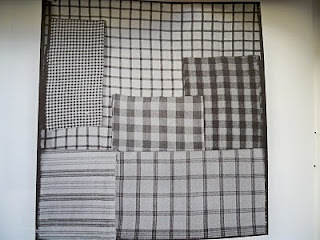Taxes paid in wool!
In 1645 all sheep were accounted for and wool export from England was stopped.The colonist held dear their valuable sheep . By 1660 there were 100,000 sheep in the colonies.For their success the colonies were penalized .By an enactment of the Massachusetts courts every house hold was required to produce 3 pounds of spun yarn every week for thirty weeks.If not they were fined 12 pence. An unmarried aunt,sister,was given the legal title of "spinster" at that time to help meet that new rule.
The breeding of sheep and the processing of wool and the spinning of wool became the all-important endeavors of every man ,woman and child early in the colony.Raising of sheep became common for many New Hampshire in the seventeenth century as apart of their existence..Rhode Island payed their taxes from 1665 to 1690 not with money but with wool.Excerpt from the book"Handwoven Textiles of New England"Handwoven Textiles of Early New England: The Legacy of a Rural People, 1640-1880
The breeding of sheep and the processing of wool and the spinning of wool became the all-important endeavors of every man ,woman and child early in the colony.Raising of sheep became common for many New Hampshire in the seventeenth century as apart of their existence..Rhode Island payed their taxes from 1665 to 1690 not with money but with wool.Excerpt from the book"Handwoven Textiles of New England"Handwoven Textiles of Early New England: The Legacy of a Rural People, 1640-1880




Comments
Yesterday there was a large protest on the Boston Common which reminds me of a similar protest on the Boston Common back in the 1700's with young girls bringing their spinning wheels to show their support for their country and freedom from tyranny.
The spinning wheel became the symbol for liberty.It has all been forgotten now.I have been reading some old weaving books.